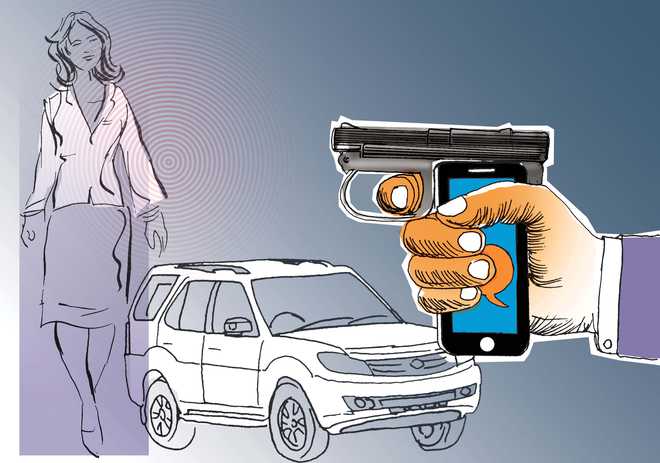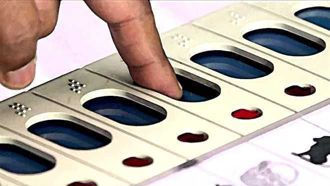
Illustration: Sandeep Joshi
Harish Khare
LET us call it the Barala Syndrome. Or simply, the arrogance of power. Let me explain.
Many decades ago, I got a lesson in just this kind of arrogance. I was just back in India after my studies in America. A few weeks into the first newspaper job in India, I was subjected to a reality check. Our newspaper was chasing a story of how the then Lieutenant-Governor had misused his position to get his son undeservingly into a medical college. It was a simple, uncomplicated case of abuse of power. But, a foreman in our printing press, who came from eastern UP, confronted me: “I am unable to understand all of you vilayat-educated people. The man is Lt-Governor of Delhi. What is the use of him being L-G, if he cannot get his son admitted into a college?”
This was a rude but unvarnished lesson in the popular perception of the public office and the privileges the ruling elites were deemed to be entitled to.
That was more than 30 years ago. Since then, we have tried our collective best to devise laws and moral sanctions to minimise these claims of entitlement. We continue to struggle trying to bring everyone, however high and low, within the ambit of lawfulness. Yet, the basic essence of the question that the foreman had posed 30 years ago still provides our political class their mojo.
I am not surprised that Vikas Barala should have behaved so boorishly on that night in Chandigarh. The so-called muscular popular culture encourages stalking and harassment of women as normal. Nor am I surprised that the Chandigarh Police was found wanting that night; every policeman knows how to treat the brat of a powerful politician.
What has also not surprised me is the response of the entire BJP hierarchy in Haryana. Never mind that both the Haryana Chief Minister and the state chief are believed to be products of the RSS stable. The two gentlemen behaved as shabbily as any other politician would have acted in any other political party at any other time.
What is surprising is the campaign in the social media that was launched against Varnika Kundu. These online goons implied, more or less, that Ms Kundu invited the stalking because only “these kinds of women” are on the streets after sunset. The victim was blamed for bringing it all upon herself. The malicious energy came from the same corner that arrogates to itself the exclusive right to distribute certificates of deshbhakti and imandari.
This social media assault on Ms Kundu’s character is the most chilling addition to the Barala Syndrome. It is one thing that these hired fingers are used to barrack and besmirch the political rivals and parties; it is frightening that this dark power can be so easily unleashed against any citizen who dares to question the new rulers’arrogance of power.
Those who claim to have introduced a new virtuous civic culture have turned out to be practitioners of old bad habits of abuse of authority.
********
RECENTLY, I found myself having to bone up on the drama around Partition and Independence. And, I came across this delightful account of what happened on midnight of 14-15 August. The account is penned by one of the finest civil servants of the era, HVR Iengar, an ICS officer who worked with Nehru and Patel in those crucial months. It is from a collection of Iengar’s writings, Snapshots of History.
I reproduce this passage because it encapsulates the Indians’gift for jugaad, perhaps a cultural weakness for getting around the rules and regulations from the first day of our existence as a free nation:
“The midnight session was held in the Chamber, which is now the Lok Sabha, and the question arose as to how to accommodate the thousands of persons who were anxious to be present on so momentous an occasion. The accommodation in the galleries was very limited and could not, at the best, accommodate more than a few hundred people. It was decided by me, in consultation with Dr. Rajendra Prasad who was the President of the Assembly, as well as Pandit Nehru and Sardar Patel that an invitation would be issued to each member for one relative of his choice. Dr. Rajendra Prasad strictly adhered to this formula. Pandit Nehru asked for just one ticket for Indira Gandhi; and Sardar Patel similarly asked for just one ticket for his daughter, Maniben. I know that dozens of people begged all of them to “put in a word” with me, but they refused. One member of the Cabinet sent his wife to see me; and I recall her walking out in a huff because I refused to oblige her husband by issuing more than one pass. A distinguished journalist also called on me and asked for half-a-dozen passes. I similarly refused; and I well recall his meeting me in the corridor a few days later to tell me he had “fixed things up” at lower levels in my office. “I realise,” I remember him saying, “that it is a mistake sometimes to go to the top for favour particularly when the top consists of rigid bureaucrats like yourself.”
Since then we have only finessed jugaad many times over.
********
THE other day, I was pleasantly surprised to receive from Mrs Kiran Chadha, an IAS officer, a copy of a coffee-table book she has privately produced on her native town, DALHOUSIE ..through my eyes. Along with the elegant book was an invitation to attend its second launch on the 19th.
Coffee books make, mostly, an eye-catching format. Even then, Ms Chadha’s work is an impressively produced book, with fabulous photographs, bringing alive the breathtaking beauty of the Chamba hills. Of course, there is a bit of self-indulgence about her family but the book is a labour of love and a well-deserved pride in her clan’s association with the famed hill station. Her father, we are told, was the “first local qualified doctor to set up medical practice.”
This is much more than a coffee-table book. It talks, for example, about how the very idea of a hill station came about. The British felt a desperate need to escape the oppressive heat and malaria of the great plains. The British doctors believed that the dreaded anopheles mosquito would not breed beyond a height. Hence, the hill station.
And, a hill station also meant a display of the European culture and western lifestyle. Ms Chadha tells us that the life and activities at the Dalhousie Club, established in 1895, would take place around the bridge room, billiards room, cards room, library, reading room, lounge and a bar; and, outdoors, there were tennis and squash courts. An attempt at replicating the presumably evolved lifestyle of the bara saheb.
And then, there is a mention of those fascinating four days between August 15 and August 18, 1947, when confusion prevailed over the fate of Gurdaspur district (which included Dalhousie). On August 14, “Pakistani flag was seen flying brazenly in Gandhi Chowk”. There were minor riots. But Nehru’s intervention was sought and Panditji could see to it that Gurdaspur remained with India. And, Ms Chadha tells us, how jubilation broke out as the “tricolour went up again” all over the town.
This book brings out Ms Chadha’s infatuation with Dalhousie. She has managed to chronicle the changing face of this town; and, now, like any sensitive soul, she is not at all that pleased that the town has lost its old ambience in the face of relentless demands that the commercial and tourist industry makes. Of course, she is not locked into the old, bygone era, but she does desire that Dalhousie should develop into an “eco friendly town.”
Ms. Chadha deserves a hand for this impressive ode to Dalhousie. She has certainly vetted my desire to make a visit to this town. Hope to see you in Dalhousie, Ms Chadha.
********
VIKAS BARALA’S first name has caused considerable sarcastic humour. This one, sent by a former colleague, reads much better in Hindi:
Modi jee ne kaha tha vikas aayega.
Par larhkiyon ka peechha karega, ye nahi bataya tha.
(Modi had promised to deliver “vikas”, but he did not tell us that “vikas” would be chasing women).
All those women and men who turned up on Friday night for the “Bekhauf Azadi March” deserve a salute. I raise my cup of coffee to these unintimidated voices. Join me.



























